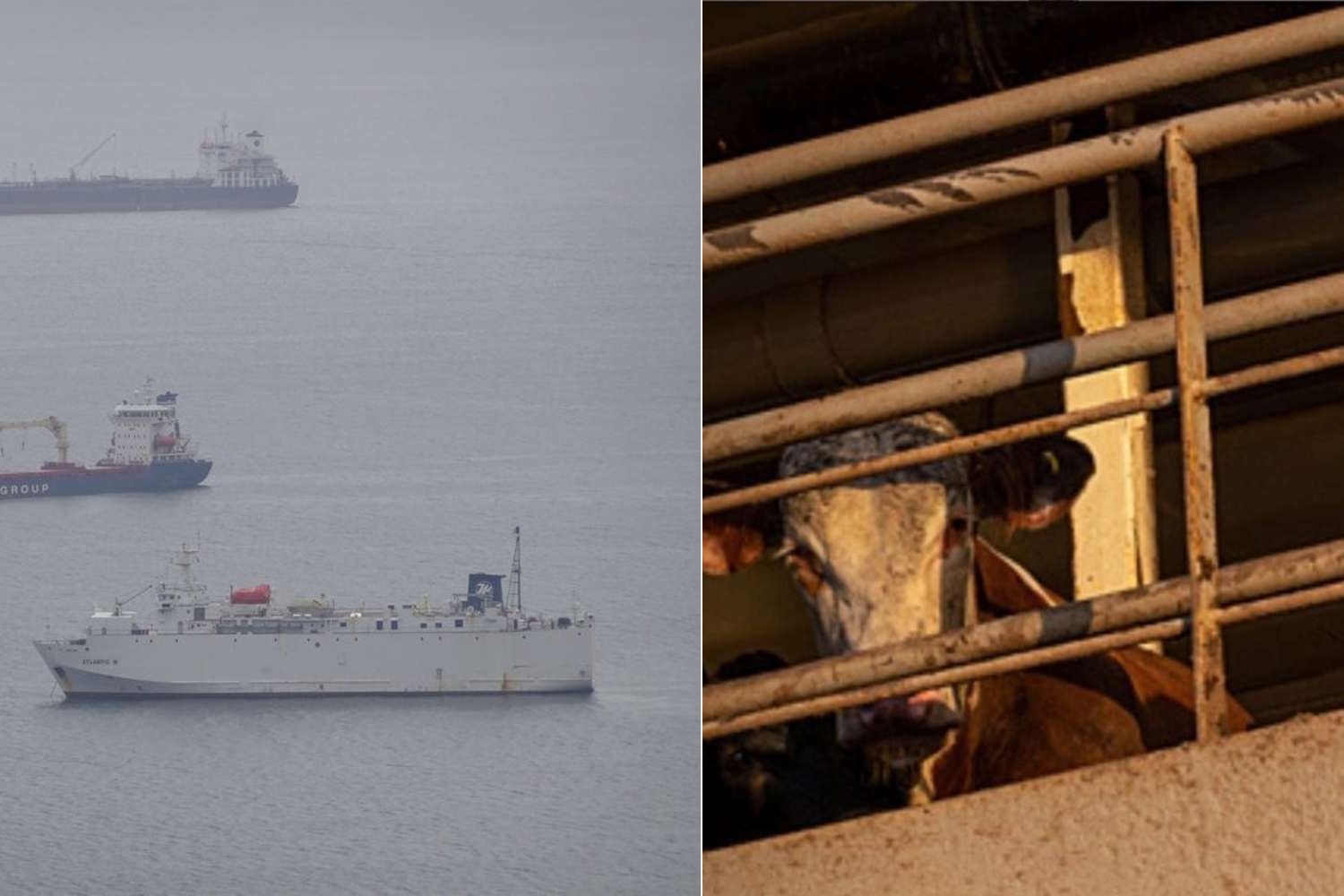The animals on board the Express M remained trapped for more than two weeks, without sufficient food or water, further demonstrating the urgency of abolishing the transport of live animals by sea to other countries.

@Stefano Belacchi/We Animals
Thousands of sheep and cattle were stranded at sea for 15 days with minimal food and cramped conditions, showing the utter cruelty of transporting animals. The Express M ship, which sailed from Romania to Israel, experienced engine breakdowns, extending the journey to over two weeks—almost four times longer than they were originally supposed to be on the road. This ordeal adversely affected the 2,400 cattle and 460 sheep that were on board, subjecting them to harsh conditions and risking their lives.
lav.it
Animals subjected to systematic mistreatment
This event highlights the general problem of cattle and other animals spending weeks being subjected to harsh weather conditions, starvation, thirst, and denial of rest throughout transport. These animals undergo weeks-long travel, and upon arrival, they are exposed to more inhumane treatment.
lav.it
Outdated and poorly maintained vessels
Vessels employed for such shipments are often old and in a neglected condition. The Express M, constructed in 1983, has a disturbing background that includes alleged cruelty to animals on board.
It was detained at Waterford, Ireland, due to a number of safety concerns, which led to the revocation of its approval certificate. There were further detentions in 2009 (Falmouth, UK), 2018 (Tarragona, Spain), 2020 (Sines, Portugal), and then again in December 2024 (Sines, Portugal). The detentions identified 25 deficiencies, some of which include safety construction, navigation, and anti-pollution matters. In April 2018, under Atlantic M, the vessel was delayed in Tarragona for five days after it had loaded 4,000 lambs and 1,700 calves. lav.it
Call for action
Animal welfare groups are calling on the EU Health Commissioner to issue a ban on sea transportation of live animals. The European Commission is considering assessing regulations on the transport of live animals, and campaigners are arguing that such practices must be brought to an end in order to avoid systematic abuse. lav.it
“Cases in the United States”
In the USA, regulations on transporting animals are stringent, particularly for flights. For instance, as of August 1, 2024, new American restrictions impact carrying dogs as carry-on baggage in the cabin or cargo. Carrying dogs to the USA is still possible as air freight through reputable animal transportation providers. While such accidents like the Express M are less frequent in the U.S. due to these rules, issues regarding animal transport remain, necessitating ongoing attention to animal welfare while being transported.
